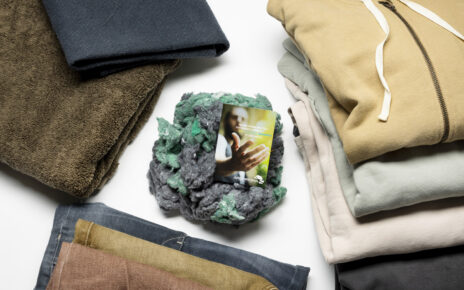OEKO-TEX® Association, the global standard in certifications, emphasizes its vision of transparency, trust, safety and sustainability in the textile production processes in its Annual Report 2019/2020.

Excerpts from the Annual Report 2019-2020:
The organization released measures in March-April 2020 which showcase how it has adapted its processes for certificate renewal. Despite disruption in manufacturing and other processes across global industries due to COVID pandemic, OEKO-TEX® continued to work towards renewals to prevent interruptions for the retailers and supply chain partners. Existing certificate renewals were temporarily processed without samples to give certificate owners 3 additional months to gather testing samples. In a generous gesture, OEKO-TEX® waived off license fee for STANDARD 100 certification for mouth and nose masks in these challenging times.
The annual report showcases OEKO-TEX®’s engagements with United Nations (UN), Organisation for Economic Co-operation and Development (OECD), Partnership for Sustainable Textiles, Zero Discharge of Hazardous Chemicals (ZDHC), Universities and OEKO-TEX® International Advisory Board.
The 2 engagements with UN Multi-Stakeholder Initiative(MSI) has OEKO-TEX® focusing on transparency and traceability in textile and leather supply chain for consumers, manufacturers and brands.
The policies of the OECD are often the basic foundation of other MSIs. As an international organization, the OECD provides an ideal platform for expedient dialogue.

OEKO-TEX® views its engagement in the Partnership for Sustainable Textiles which has tangible ways to foster structural changes. OEKO-TEX® supports the Partnership in the Wastewater Initiative – launched on July 01, 2020 – to help businesses to incorporate a sustainable wastewater management in the textile supply chain.
As a contributor to ZDHC, OEKO-TEX® continuously collaborates in reducing industrial chemical footprint.
Since 2018, OEKO-TEX® has been involved in academic discourse with the Academy of Fashion and Design, Dusseldorf. OEKO-TEX® is expanding such engagements to other universities.
OEKO-TEX® will soon launch an International Advisory Board to allow external stakeholders to participate and provide insights and perspectives to improve industrial standards.
Labels by OEKO-TEX® such as MADE IN GREEN, STANDARD 100, LEATHER STANDARD, STeP, DETOX TO ZERO and ECO PASSPORT support manufacturers in creating sustainable products. With MADE IN GREEN, textiles can be tested for harmful substances and it ensures manufacturing under sustainable working conditions. STANDARD 100 and LEATHER STANDARD cater to textile and leather products that are safe from human-ecological aspect. STeP certification and DETOX TO ZERO analysis optimise the manufacturing processes for ecological and responsible production of textile and leather products. ECO PASSPORT identifies eco-friendly chemicals, auxiliaries and colourants used in both textile and leather industries.
Participation in the annual Round Robin Tests by OEKO-TEX® are mandatory for institutes to guarantee the quality of OEKO-TEX® certifications. In the current year, about 37 different product groups were covered. About 4948 certificates were inspected from companies in 63 countries.
Currently, over 16000 manufacturers, brands and retailers in about 100 countries work with OEKO-TEX® to ensure that their products are tested for potentially harmful substances.
Blurb:
OEKO-TEX® focuses on transparency and traceability in textile and leather supply chain with UN MSI.




